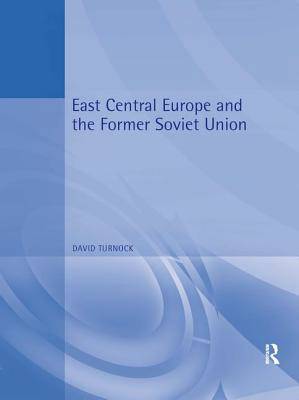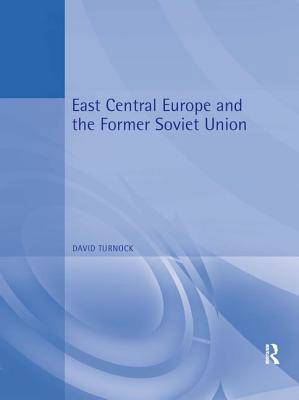
Je cadeautjes zeker op tijd in huis hebben voor de feestdagen? Kom langs in onze winkels en vind het perfecte geschenk!
- Afhalen na 1 uur in een winkel met voorraad
- Gratis thuislevering in België vanaf € 30
- Ruim aanbod met 7 miljoen producten
Je cadeautjes zeker op tijd in huis hebben voor de feestdagen? Kom langs in onze winkels en vind het perfecte geschenk!
- Afhalen na 1 uur in een winkel met voorraad
- Gratis thuislevering in België vanaf € 30
- Ruim aanbod met 7 miljoen producten
Zoeken
East Central Europe and the Former Soviet Union
Environment and Society
David Turnock
Paperback | Engels
€ 94,95
+ 189 punten
Omschrijving
Since 1898, the former communist countries of Eastern Europe have gained international prominence. The continuing socio-economic transition and the instability evident in areas like the Caucasus and Former Yugoslavia have drawn the western world into uneasy interactions with the region. At the same time, closer commercial and cultural contacts are providing opportunities for rewarding relationships which have now resulted in many of these countries joining the EU.
This book provides detailed coverage of the transition from communism to a market economy. Covering the whole range of East Central European and former Soviet Union countries, it charts the diversity within the region, offering in-depth coverage of specific areas as well as a broad view of development across the region. The book is organised into three comprehensive sections: the historical, socio-economic and environmental. The socio-economic section considers the critical issues of restructuring to effect the transition from central planning to a market economy, while the historical material provides an essential context for the constraints and opportunities affecting the region. The environmental section places emphasis on results of environmental neglect inherited from communism as well as looking to the future implications of EU directives on the problems of biodiversity and pollution in the region.
Specificaties
Betrokkenen
- Auteur(s):
- Uitgeverij:
Inhoud
- Aantal bladzijden:
- 288
- Taal:
- Engels
Eigenschappen
- Productcode (EAN):
- 9780340692165
- Verschijningsdatum:
- 29/06/2001
- Uitvoering:
- Paperback
- Formaat:
- Trade paperback (VS)
- Afmetingen:
- 188 mm x 244 mm
- Gewicht:
- 544 g

Alleen bij Standaard Boekhandel
+ 189 punten op je klantenkaart van Standaard Boekhandel
Beoordelingen
We publiceren alleen reviews die voldoen aan de voorwaarden voor reviews. Bekijk onze voorwaarden voor reviews.









